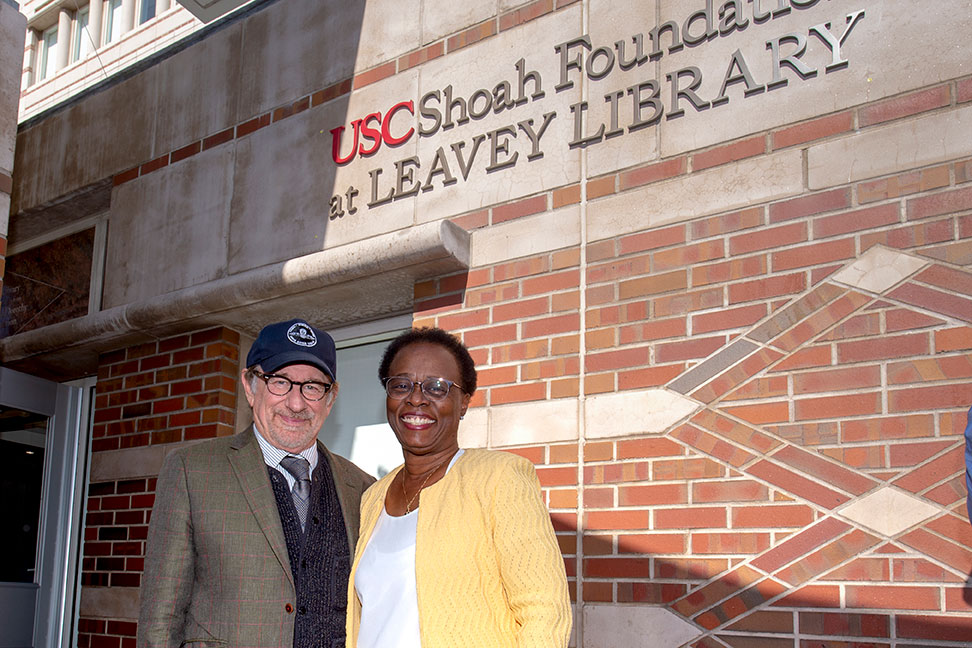Shoah Foundation opens new Leavey headquarters

Director Steven Spielberg, who founded the Shoah Foundation, and interim president Wanda Austin attended the opening ceremony. (Photo from the Shoah Foundation)
The USC Shoah Foundation’s headquarters has moved to the fourth floor of Leavey Library and its Visitor’s Center is open to the public starting Monday.
Featuring virtual reality theaters, interactive exhibits and innovative research spaces, the Shoah Foundation’s new home will allow it to share its visual history archive of over 55,000 testimonies from genocide survivors on campus.
The foundation celebrated its 25th anniversary last week with the opening. Shoah Foundation founder Steven Spielberg and interim president Wanda Austin attended the ceremony.
The foundation was started by Spielberg in 1994 after he directed “Schindler’s List” the year prior, and moved to USC in 2005. Before moving to the top floor, the foundation was housed on the third floor of Leavey Library.
The new location provides spaces for recording testimonies from genocide survivors, technology for showing virtual reality films and interactive exhibits for visitors to explore the foundation’s work.
“There’s lots of interactive screens, videos, ways to engage with the content, learn about what we do, search for family or other kinds of research,” said Aaron Zarrow, the Shoah Foundation strategic communications manager.
In addition to the new features that allow the general public to view the archive, the new space includes offices and conference rooms for researchers.
“Not only are they able to work in a space but … we’ve got a space for doing conferencing and meetings and seminars,” said Stephen Smith, the foundation’s executive director. “We can accomodate people on the side, which is terrific.”
Integrating emerging technology into the new headquarters makes it possible to create a more visual experience to present their research to the public, Zarrow said.
“[The headquarters] has more than double the space and really upgrades a lot of the technology,” he said. “There’s some functionality that we have now that we didn’t have before,” he said.
Smith said the new headquarters will allow the Shoah Foundation to access the public, both at USC and in the global community, and see the potential of their research expand.
“While we’re more deeply embedded in the campus and the life of the campus, we’ve also got a greater facility to reach the globe with our work,” Smith said.
